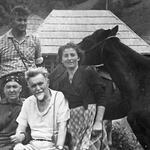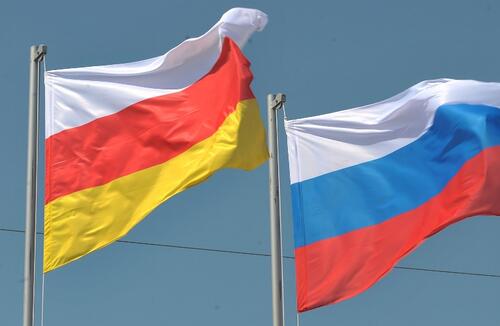February 1 is the Day of Science in South Ossetia. The holiday was established on February 4, 2014. Prior to this, Science Day was celebrated on February 8, as in Russia. The date of February 1 was chosen in connection with a significant event: on February 1, 1922, the "Scientific and Literary Society" was created - the first scientific institution in South Ossetia.
At the origins of the Ossetian science were outstanding devotees who played a key role in the restoration of South Ossetia, destroyed by the genocide unleashed by Georgia: Alexander Tibilov, Zakhar Vaneev, Pavle Dzhatiev, Sozruko Kulaev, Shakro Vaneev, Bidzina Kochiev and others ... Almost all were shot in 1937. The history of the South Ossetian science, like the history of South Ossetia itself, is a chronicle of tragedy and heroism.
But in the short century allotted to the Ossetian devotees, they managed to do a lot. In June 1925, the "Scientific and Literary Society" was renamed the "Society of Local Lore", and later in 1927 - the South Ossetian Institute of Local Lore.
In April 1936, this institute was reorganized into the South Ossetian Research Institute of Language, Literature and History, and since 1944 - into the South Ossetian Research Institute.
Zakhar Vaneev, the founder of the South Ossetian historical science, who became the first director of the Research Institute, played a huge role in the development of the Research Institute. Currently, the South Ossetian Research Institute is named after Zakhar Vaneev.
Throughout its existence, the institute has been taking an active part in solving important socio-economic, socio-political, cultural issues.
Gradually, at the institute, at the academic level, research began on ancient and medieval history, modern history, including the history of the South Ossetian party organization, language and literature, monographs and collections of documents, brochures, dictionaries, textbooks began to be prepared, Ossetian literature and oral folk art were studied, carried out linguistic, economic, ethnographic and archaeological expeditions.
Over the years of the existence of the Research Institute, the outstanding Ossetian scientists, writers, and cultural figures were working within its walls.
The staff of the institute maintained close contacts with scientific institutions in Moscow, Leningrad, Tbilisi, Baku, Yerevan, the republics of the North Caucasus, as well as with scientists from foreign countries (USA, England, Bulgaria, Hungary, Germany, Turkey, France).
Those who stood at the origins of South Ossetian science also thought about training personnel for it. In 1918, Alexander Tibilov, Bidzina Kochiev and Shakro Vaneev opened the first gymnasium in Tskhinval, and later a pedagogical college.
The Pedagogical Institute was founded on January 1, 1932 - another anniversary date. In 1994, already in independent South Ossetia, the State University was established on the basis of the Pedagogical Institute.







